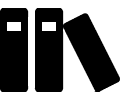

Agency and autonomy are two concepts that get thrown around quite a bit, and as both psychological and philosophical ideas, everyone has slightly different definitions. For this blog, we'll take autonomy as someone's possession of free will, while agency is the capacity to act on that free will. Autonomy is the ability to recognize ourselves as autonomous beings or as our own true, independent self, an independent being that can then make choices for themself. Agency is then the capacity to take action based on our autonomy.
So what does this mean for Reiki? As Reiki practitioners, agency and autonomy fall in line with the Reiki precept, 'Just for today I will do my work honestly'. Honesty in our practice does not simply mean telling the truth, but also calls us to remember and honor the agency and autonomy of ourselves and our clients in session.

We have the practitioner self, or the one who is channeling the Reiki, working with the client who has come to them to be ‘healed’. This is an important distinction: Many clients may come to us with the hopes of being healed, but part of our responsibility in honoring the autonomy of our clients is remembering that we do not heal. We hold space to awaken the innate healing capacity of the client, to remind them that healing is part of who they truly are. Then, we have the human to human dynamic, the connection of one soul to another in a space where suffering, questions, and past experiences will be shared and acknowledged. It is part of the responsibility, and the opportunity, of a practitioner to have compassion for our clients while maintaining an objective distance from their problems. In human to human contact, it is natural for problems and emotions to be shared and reciprocated, but as practitioners we are not there to reciprocate, but to excavate.

When we greet one another with empathy, we sit in the mud with them. We allow our own emotional equivalents to flood us as the person next to us shares their own. We hold their hand, and we acknowledge their pain, but we do so through the lens of our own experiences and unhealed wounds. This compels our desire to ‘fix’ and to ‘heal’, fueled by our fear that we cannot ‘fix’ ourselves.
But when we can greet our clients, and ourselves, with compassion, a new dynamic appears. Compassion allows us to stand on the side of the mud pit, hold out a hand, and lift each other up. Rather than staying stuck in the emotional turmoil we once felt, we stand firmly on the other side, acknowledging their pain while also holding space for what we know can, and will, come next if the client is given the space and safety to bring it forward.
This is the true importance of autonomy and agency in our Reiki practices; Recognizing that each and every client we work with will always, always have a choice as to when, where, how, and if they heal. They always have the ultimate say in what happens next in their journeys, just as we do on our own. Our role as a compassionate practitioner, rather than an empathetic one, is to hold the space open so that when, or if, they are ready to take the next step, they can.
We are not there to force them to awaken, or speed up their healing. We are not there to share every message we receive in the hopes that it will ignite a fire and show them the truth. We are there to hold the space so that when they choose, they will uncover that truth within themselves.
Just for today, I will do my work honestly.
Just for today, I will acknowledge that the person sitting across from me has just as much right to make mistakes, to avoid their healing, to take their time, to dive right in, to do what is right for them in each moment, as I do.
Just for today, I will honor the agency and autonomy of the person sitting next to me- and of myself.
What will you do, just for today? Share with us over in the ReikiCafe Community Facebook group!
All the love,
Isabel Wells
ReikiCafe University Professor



Sign in/up with Facebook
Sign in/up with X
Sign in/up with Linkedin
Sign in/up with Google
Sign in/up with Apple


Wouldn't it be a good idea to create a course?
